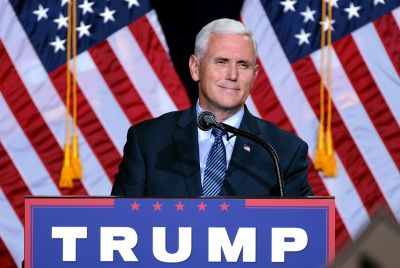India Inc. to benefit from PM's visit to South Africa
Indian Prime Minister Dr. Manmohan Singh's three-day visit to South Africa is expected to benefit India Inc. as the two nations will sign a number of bilateral agreements aimed to strengthen economic and commercial relationships.
According to news reports, while Dr. Singh's visit to take part in Mahatma Gandhi's Satyagraha centenary celebrations primarily aims to strengthen political ties, the two sides would also discuss the possibility of a preferential trade agreement to increase bilateral trade to about $ 10 billion by 2010 from just $ 4 billion a year ago.
Simultaneously, a team of top corporate leaders would take forward the economic and commercial relationship of India and South Africa, the continent's largest economy.
The India-South Africa CEOs forum, co-chaired by Tata Group chief Ratan Tata, would seek to explore specific business opportunities in various sectors of mutual interest.
Besides the Tata Group, which is the largest Indian conglomerate in South Africa with presence in steel, auto, coffee, IT and hospitality, other aspiring Indian multinational companies such as banking powerhouse ICICI, and drug giant Ranbaxy are part of the team.
The promise of greater trade ties between the two regions was also reflected in a World Bank study last month that said India's foreign direct investments in Africa, though presently modest, was growing very rapidly.
Mittal Steel, owned by NRI steel tycoon Lakshmi Mittal, too has acquired state-owned steel maker Iscor in 2004 - though it hardly qualifies as an Indian investment.
About 35 homegrown corporates have a significant presence in South Africa, with Indian investment likely to be more than $ 500 million over the next one year.
Indian investors include Tata Group, auto majors Ashok Leyland and Mahindra and Mahindra; pharma companies such as Ranbaxy, Cadila and Cipla; IT software and hardware companies like Zenzar Technologies and Sahara Computers, as well as banks like ICICI and State Bank of India (SBI).
Tata Steel is building a $ 100 million ferrochrome plant in KwaZulu-Natal region, while VSNL would invest about $ 200 million in fixed-line telecom services. Tata Group would also set up hotels in Johannesburg, Cape Town and Durban under its hospitality chain Taj brand of luxury hotels.
Further, Indian firms are also taking the inorganic growth path and have acquired stakes in a number of South African businesses.
In January this year, Apollo Tyres acquired Dunlop SA in a Rs. 300 crore deal, while Godrej Consumer Products signed an agreement in July to acquire Rapidol for Rs. 31.22 crore.
While Indian companies have made inroads in their country, South African firms have also either expanded or planning to expand in the Indian market.
Liquor giant SABMiller is consolidating its market share in India through acquisitions. It had acquired a majority interest in Mysore Breweries for $ 17.5 million and recently acquired Foster's in India for $ 120 million. Many insurance firms such as Old Mutual, Sanlam and Hollard are also expanding India operations.
Airports Company of SA won the contract for upgrading the Mumbai airport in a joint venture with the GVK Group.
Alternative fuel company Sasol, pioneer in converting coal and gas to diesel, plans to foray into India with an investment of $ 6 billion, which if materializes could be the single largest FDI in the country.
India's commercial engagement in South Africa will have long-term strategic consequences for the country, say analysts.
Indian firms are taking advantage of favorable domestic economic conditions to move into the global economy. Low labor costs, strong economic growth and the availability of highly skilled labour will all assist Indian firms in their drive for multinational status.
...Indian business active in Africa are operating on a global scale, working with world-class technologies, producing products and services according to the most demanding standards, and fostering the integration of African businesses into advanced markets, the World Bank report said, pointing to the potential for greater engagement, adding, Still, there is a major unevenness in the emerging commercial relationships between the two continents.
© Copyright IBTimes 2024. All rights reserved.





















